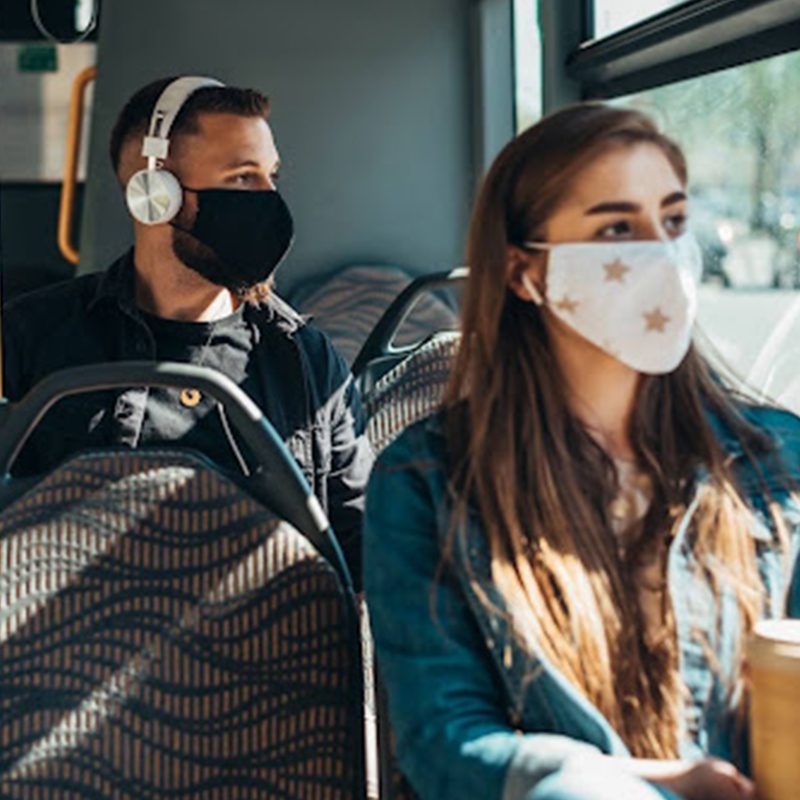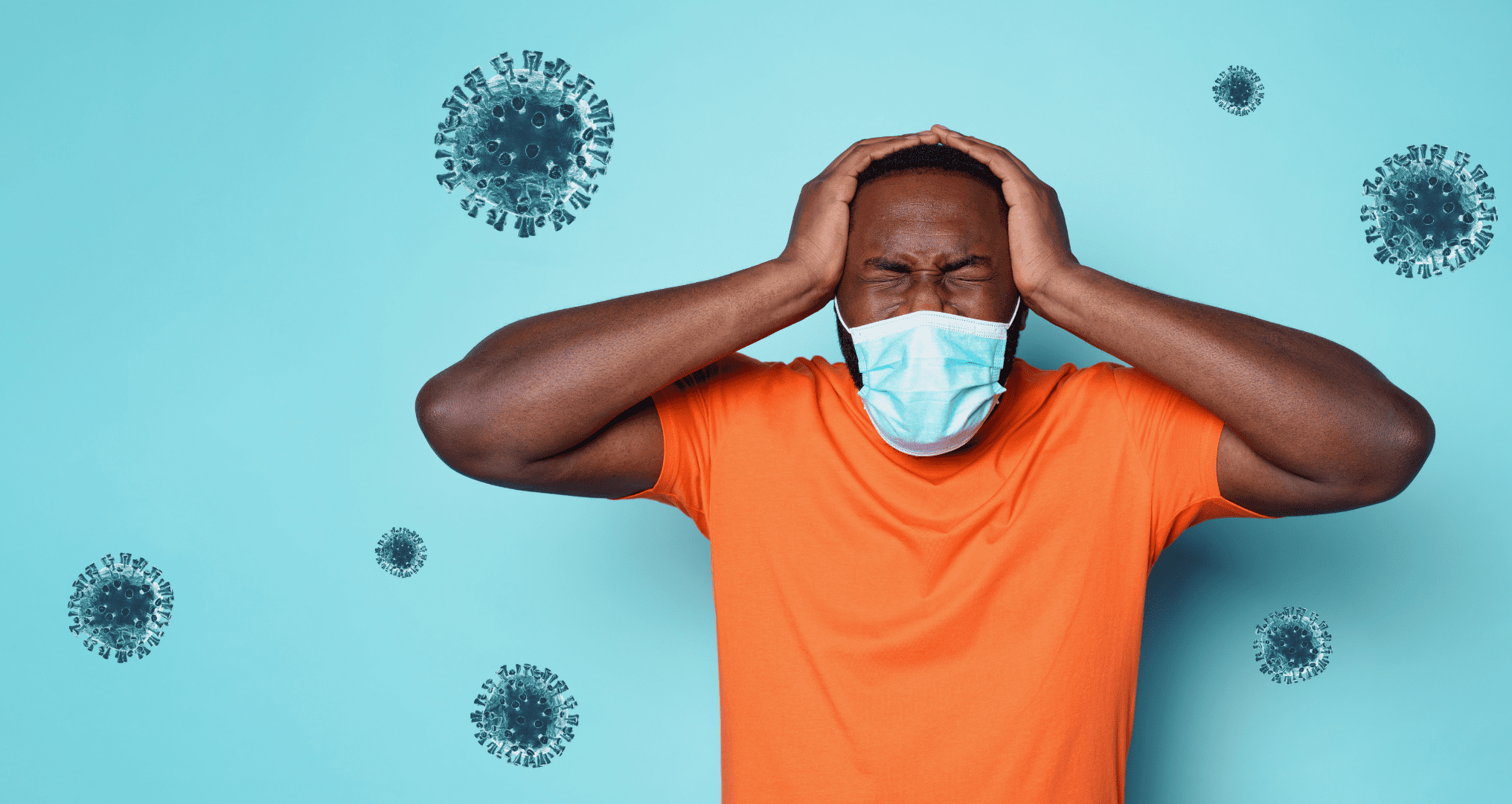Mask mandates around the country and world sparked heated debates, even screaming matches, at school meetings, grocery stores, and dinner tables. Understanding why some people experience anger and hostility around this issue while others don’t has to do with basic human behavior.
Everyone’s experience on this Earth is subjective. We each see and react to what happens around us through the lens of our own unique brain which is shaped by our personal life experiences. Because of neuroplasticity, the ability of our brains to change both form and function based on input, we each develop a subjective interpretation of the world based on our personal experiences.
Each person then integrates their experiential impressions with how their basic needs are met and the result is a person’s wellbeing — or lack of wellbeing. This is called the theory of self-determination. The theory proposes that there are three universal needs: autonomy, psychological relatedness, and competence.
Mask-Wearing Comes with Many Challenges
It Can Threaten a Person’s Autonomy
While a few people were exempt, masks became a requirement in public spaces for most of us during the Covid-19 pandemic. Mask mandates enraged some people and made them feel as if their personal autonomy was being taken away. This led researchers to wonder about the effects of wearing face masks on a person’s mental health.
Research found that face masks can definitely cause anxiety, when you wear them or just see them on other people, but they also found that, for some individuals, face masks actually decreased anxiety because the people felt safer. Like everything, the effects of mask wearing vary for each person.
Communication Challenges of Wearing a Mask
It’s understandable why wearing face masks would make people anxious. We rely on facial cues to help us navigate the world and interact with one another. Nonverbal communication, including facial gestures and expressions, constitutes 55% of overall communication, and our social interactions are very different without these cues. Studies found that covering the face inhibits the recognition of identity and emotional expressions. Also, it makes the eyes more important, since they are the only reliable index visible to orient our social and spatial attention. Research also shows that prolonged eye contact can cause us to feel uncomfortable and mentally fatigued. We have all probably experienced “Zoom fatigue” because of this.
Breathing Difficulties
Some people feel claustrophobic and have difficulty breathing while wearing a mask. Breathing issues are a genuine concern for individuals with breathing conditions, like COPD or asthma. However, a lot of people feel short of breath or breathing impaired while wearing face masks even though studies show that wearing a face mask has a negligible negative effect on oxygen and carbon dioxide levels.
The research found that feeling breathless or uncomfortable when wearing a mask has to do more with the increased effort of breathing, rather than changes in gas levels. This feeling is often more pronounced in people with underlying lung disorders. Perception of breathlessness can be likened to a pain threshold. It varies widely from person to person and is affected by fatigue, how healthy the person is, and other factors.

Masks Can Trigger Trauma
Something covering the mouth can trigger past trauma for some people. Individuals with PTSD or a history of violence or trauma might feel extreme anxiety, fright, or panic with something covering their mouth and nose or because they can’t see people’s faces in public. Even if you have never experienced major trauma, wearing a face mask or the sight of one can be unsettling.
Face masks can make a person feel uncomfortable for many reasons. You might feel like your freedom is being taken away; you may fear getting sick or making someone else sick; and it’s a constant reminder that things are not normal. So, before you demand someone wear a face mask, remember that their subjective experience may be very different from yours, and they may have a good reason for not doing so.
Challenges of Not Wearing a Mask
On the other hand, there are some equally challenging aspects to not wearing a mask. The Covid-19 virus spread rapidly through the air in the tiny water droplets people breathed in and out. These infected droplets traveled quickly via coughs and sneezes, making it challenging when people had to be in confined, crowded spaces with poor ventilation — like a bus, airplane, or classroom.
Wearing a mask in public was part of a strategy to reduce the transmission of Covid-19, and not wearing one, could cause anxiety in people because they feared getting the disease. Studies showed that for exhalation, both surgical and N95 masks are effective in reducing the spread of respiratory diseases. For inhalation protection, air filtering respirators such as N95 masks, which can filter contaminants, bacteria, and other matters from reaching the nose and mouth, are more effective.
Mask Manners
After about three years, the mask mandates were relaxed as Covid-19 receded. But even years after its first appearance, the virus is still around, mutating, and infecting people. Thank goodness, it’s not as deadly, and now we have vaccines and medicine to treat it. I have a feeling, it’s here to stay and will always be lurking in the background.
While you may find masks unnecessary at this point, there are still some people you’ll interact with who may have a personal reason for wearing a mask. If you encounter someone wearing a mask, be respectful and kind. As a courtesy, you might want to ask:
- “Would you like me to wear a mask also?”
- “Would you feel more comfortable if we spread out a bit?”
- “Would you prefer it if we opened a window or door?”
Is Your Anxiety About Masks or Life?
Understandably, anxiety can skyrocket when there’s a deadly global pandemic. That’s to be expected when your brain’s top priority is always keeping you safe. For many, the Covid-19 pandemic just added to and increased the anxiety and other mental health issues already present in their lives. At Grey Matters neurofeedback studio, we’ve left the decision of masking up to each of our clients. Whatever you decide, we want you to know that we can help ease your anxiety.
Anxiety begins in your brain and can end there.
Neurofeedback is a type of biofeedback therapy where you learn to control your brain activity to guide it toward more optimal functioning. Neurofeedback can teach any brain to increase its production of calming brain waves permanently. Calm and less anxious can become the default state for your mind and body.
Neurofeedback also successfully improves many other conditions, including depression, autism, ADD and ADHD, brain injuries, OCD, stroke recovery, PTSD, addictions, seizure disorders, migraines, chronic pain, IBS and leaky gut, and more. By fine-tuning the brain’s operation, neurofeedback can improve focus and concentration for anyone. For example, neurofeedback can improve a person’s performance playing a musical instrument or sports or at work or school.
At Grey Matters, we’re passionate about helping people live their best lives by optimizing their brain’s health and function. Contact or call us at (317) 215-7208 today to find out how we can help you.


